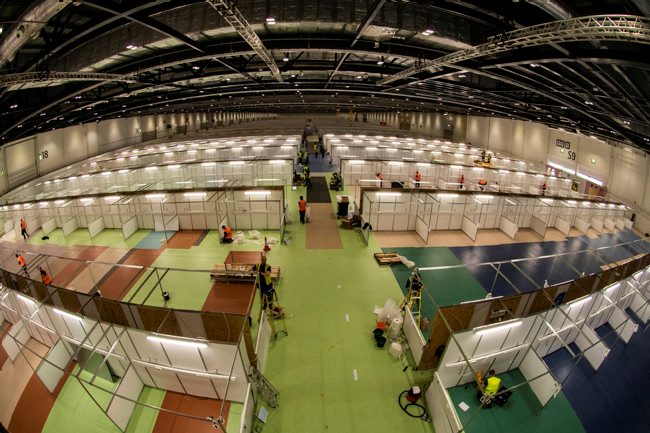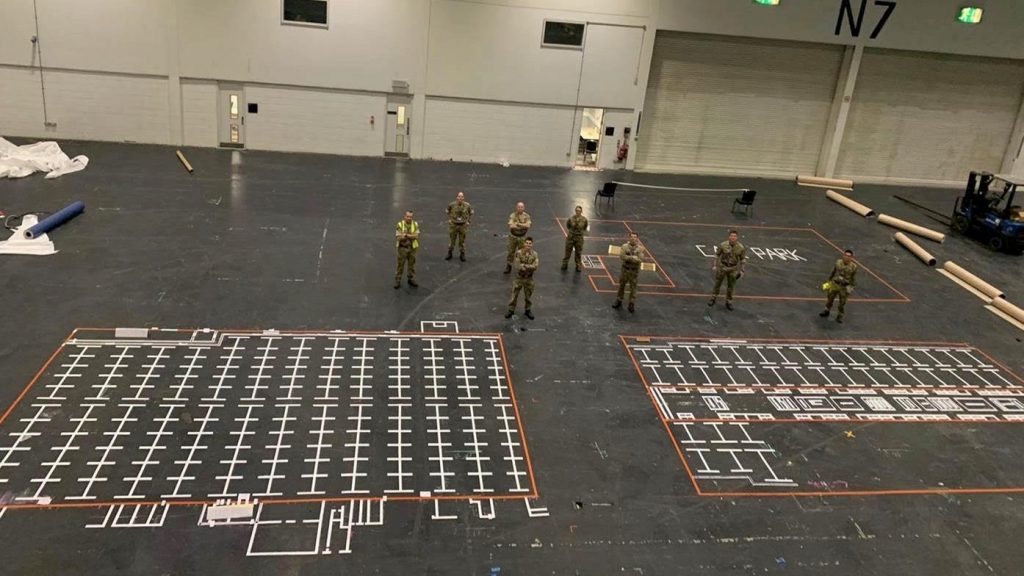
For the last few weeks, I’ve been heavily involved in preparing Reservists from 170 (Infrastructure Support) Engineer Group RE and 63 and 66 Works Group Royal Engineers in providing support for the development of the Nightingale hospitals, regional test centres and designing mobile vehicle units across the UK. 170 (Infrastructure Support) Engineer Group RE provide support to Defence and other government departments around the world on operations, humanitarian aid and civil emergencies. The Engineer Group is made up of five Works Groups each with a number of specialist royal engineer teams, known as STRE’s, with around 400 regular and 450 Reservist personnel who specialise in infrastructure. My role, as the Assistant Commander of the Engineer Group, included finding out, at very short notice, who was available from our reserve specialists to assist with the Coronavirus response. This included advising on how quickly Reserves could be mobilised, providing specialist support to the Standing Joint Command on the technical resources needed including engineers with experience of designing and building medical facilities and systems.
The Works Groups provided specialist infrastructure support, design advice and created a programme to support the development of the Nightingale hospitals. After the Prime Minister’s lockdown speech on 23 March, the Standing Joint Command created operation RESCRIPT, after a request was made by the NHS for support from the MOD under Military Aid to Civilian Authorities to help with the emergency situation. Within a few days, I had over 170 Reservists offering their support for mobilising into 66 and 63 Works Groups RE. This brought in our reserves from across the UK.

We also provided support to NHS Scotland through the MMATs who required a medical treatment facility that could accommodate a temporary medical facility at the Scottish Exhibition Centre in Glasgow with a 1000 beds. This work included assessing whether the centre could be successfully converted, looking at electrical suppliers, access routes and water supplies.
During deployments, social distancing and hygiene rules were practiced, following the two-metre social distancing rule and disinfecting door handles and work areas.
I’m now looking at how we start getting all of our Reserves back into training for their Reserve roles, in line with the rest of the British Army. I’m extremely proud of the contribution my team and Defence has provided to support the NHS and of our people who have willingly put themselves on the ‘front line’. We remain at the forefront of the government’s response to coronavirus for the foreseeable future and are on hand to assist the nation when it is needed.
Leave a comment